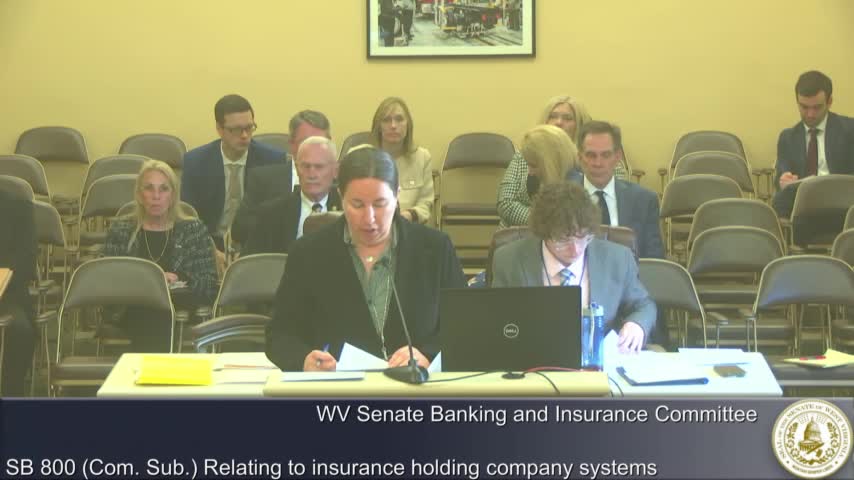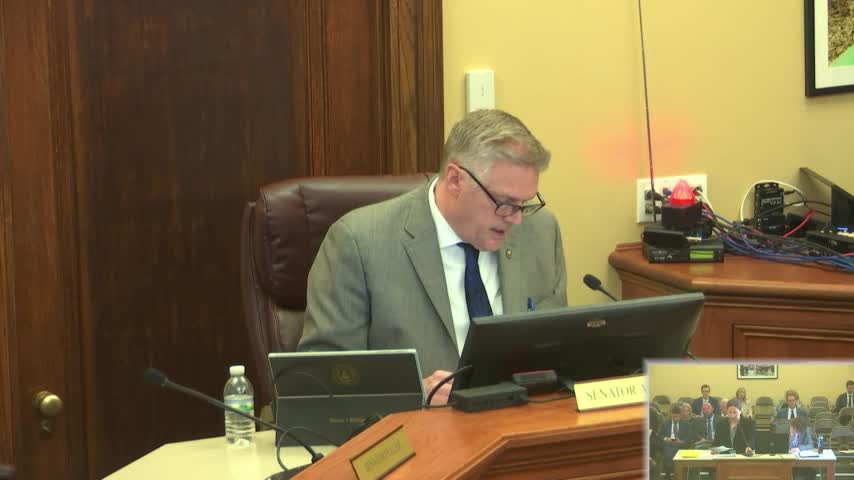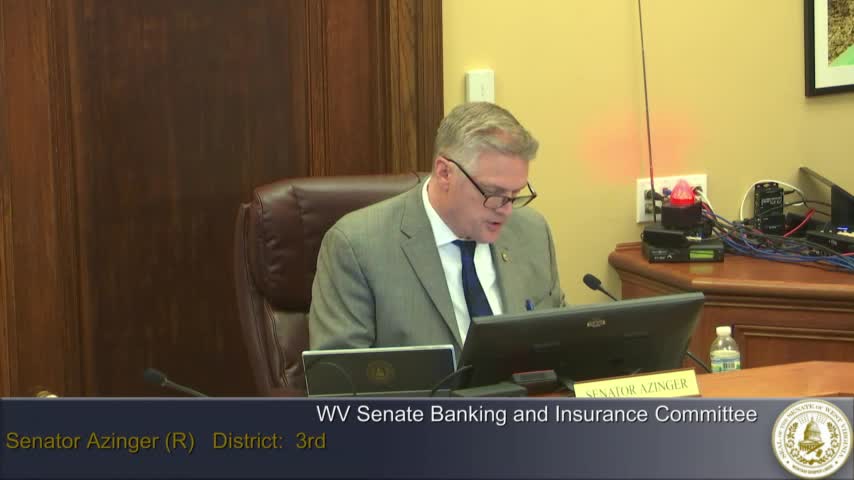Article not found
This article is no longer available. But don't worry—we've gathered other articles that discuss the same topic.

Committee approves update to insurance holding company rules to align with NAIC model

Committee agrees to report firearms industry nondiscrimination bill after proponents cite economic gains

